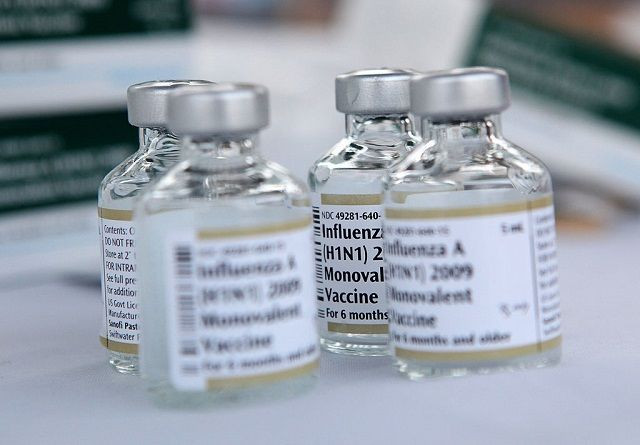Flu Shot 2016 Effectiveness: Does The Influenza Vaccine Work During Peak Season For Illness?

With the flu season about to hit its full stride, and health organizations dutifully doing their part in reminding everyone to get vaccinated, it’s time to take a brief look at one of the more pressing questions people have about the shot: Just how effective is it in preventing the flu?
Imperfect But Worthwhile
The long and short of it is that flu shots aren’t 100 percent foolproof.
They vary in effectiveness from season-to-season depending on how well scientists accurately predicted the current season’s primary flu strain. Typically, the average shot is about 50 to 60 percent effective at preventing the flu from happening in the first place, and is most effective when taken earlier in the season. If you still do end up getting the flu following the shot, though, it will likely shorten your flu's duration and severity. It will also reduce the risk of flu-related complications, particularly in those most vulnerable.
Research has shown that the vaccine can lower the risk of developing flu-associated pneumonia, which accounts for the majority of deaths caused by flu every year. And it likely provides a small but noticeable buffer against stroke following a bout of the flu, in both the very young and old. To say nothing of the many prevented infections, sick days, and deaths it offers us.
For the 2013 to 2014 flu season alone, vaccination prevented more than 7.2 million cases of flu and 90,000 hospitalizations, according to the Centers For Disease Control and Prevention (CDC). These numbers contrast with the approximate 200,000 hospitalizations and 25,000 deaths related to influenza that occur annually. But even these protective benefits are a large step down from what they could be, though, thanks to people’s hardened wariness of the shot.
Generally, these fears are fueled by misconceptions of the vaccine, such as the belief that it can actually give you the flu. Since most versions contain dead flu virus, though, that's literally impossible. People can have some minor side effects that mimic a weak flu, like headaches or muscle aches, though, which might account for the confusion.
Ultimately, warts and all, the flu vaccine is among one of the most lifesaving and beneficial medicines to come our way. It’d be a shame not to take advantage of it. Especially since there are many unfortunate people who never got the chance.



























